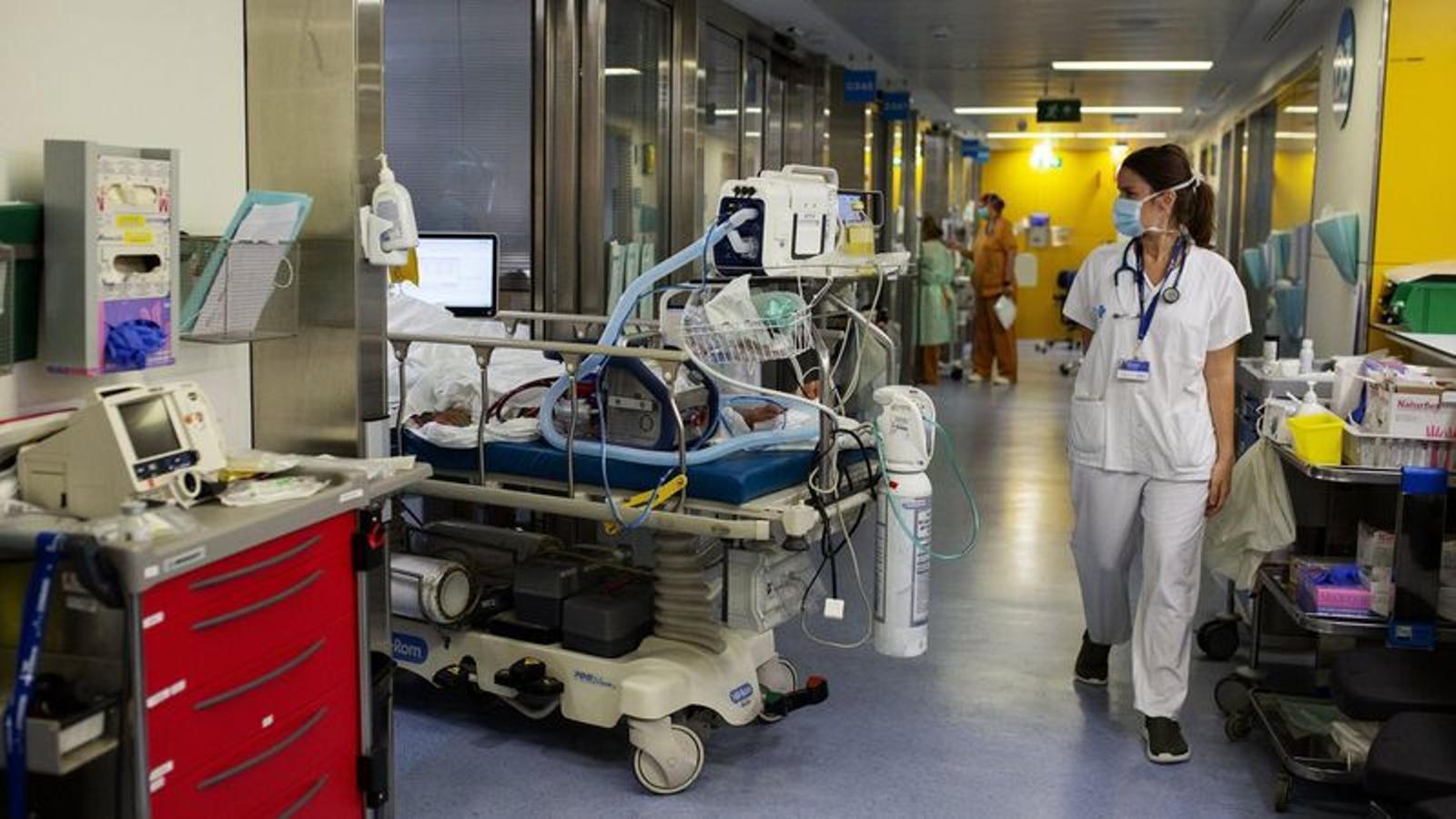"We got sick working and we feel that the health system has abandoned us".
Health workers with long covid call for speeding up the procedures for it to be recognised as an occupational disease

BarcelonaHealth workers with long covid denounce that they feel "helpless" after contracting the coronavirus working, many during the beginning of the pandemic, when they still did not have adequate protective equipment. They regret that, a year later, they are still fighting for their sick leave to be recognised "as a contingency arising from an accident at work as well as subsequent relapses and their consequences.
The Council of Ministers approved on February 2 a royal decree for covid-19 to be recognised as an occupational disease for all health and social-health personnel. Previously it had been recognised as an occupational accident. "But one thing is that we are acknowledged and another that the royal decree is applied," says Pepa Bertran, family doctor and founder of the group of health workers affected by long covid, who explains that the procedures they have to do are not being easy and services have "collapsed". "Labour insurers question whether we became infected at work". Bertran explains that this happened at the beginning of the pandemic, when traceability was hard to prove as few PCR tests were being carried out, but also later on, when hospital staff was looking after covid patients in special wards. "We are immersed in a constant struggle," she adds. "How much longer will we have to wait for it to be recognised as an occupational disease?"
Bertran denounces some irregularities that are hindering the processing of sick leave due to occupational disease: health workers who got sick and could not be tested at the beginning of the pandemic and instead of sick leave for coronavirus had sick leave for depression or anxiety, companies that refuse to make a report that states they were infected working on the ward or nurses with temporary contracts "who are not paid sick leave because their contract came to an end and it was not renewed". "The system has abandoned us," Bertran complains. "It has not protected us and now we are sick it does not take care of us. This situation of abandonment makes us rethink our work as health professionals".
The casuistry is very diverse. There are health workers who are still on sick leave and others who have returned to work but are forced to take sick leave when symptoms intensify or end the working day "unable to continue with personal and family lives". That is why they ask the management of the companies in which they work to make it easier for those affected to adapt the workplace to their needs. "We live with persistent symptoms of covid-19 - fatigue, shortness of breath, chest pain, headache... - which weaken and disable us. And we don't know if or when we will be cured," they say
Bertran explains that there are health workers with cardiac pathology and after-effects who are forced to do physical and cognitive rehabilitation at the Hospital Germans Trias y Pujol. "There are people who are very ill since March". Her case, she explains, is not one of the most serious. She is a family doctor and has been able to re-adapt her job and telework. "But I've had to stop making house calls because I suffocate and I'm doing rehabilitation. When you think you're alright, you fall again, but we'll get through this," she concludes.
